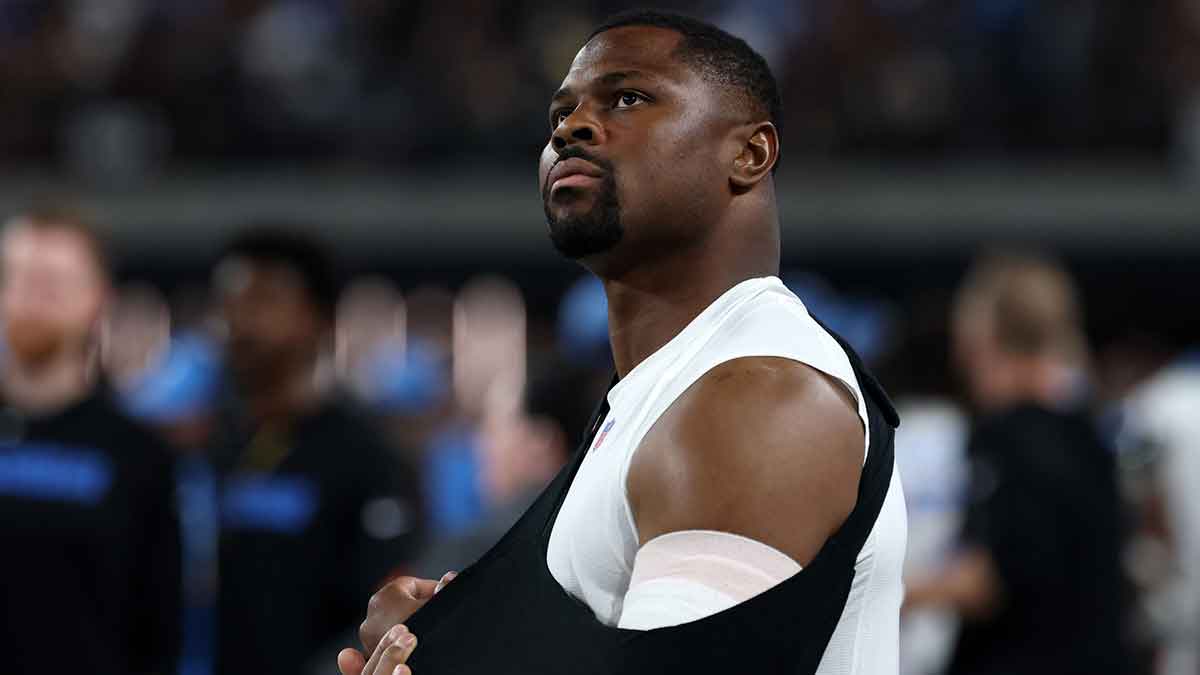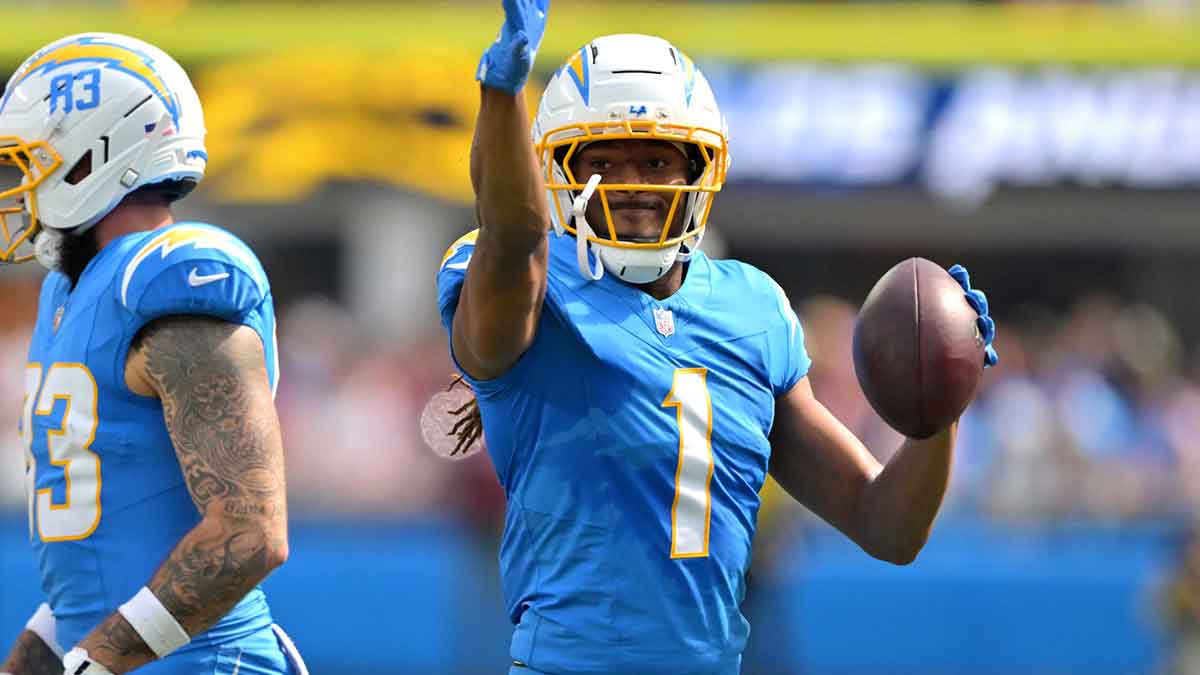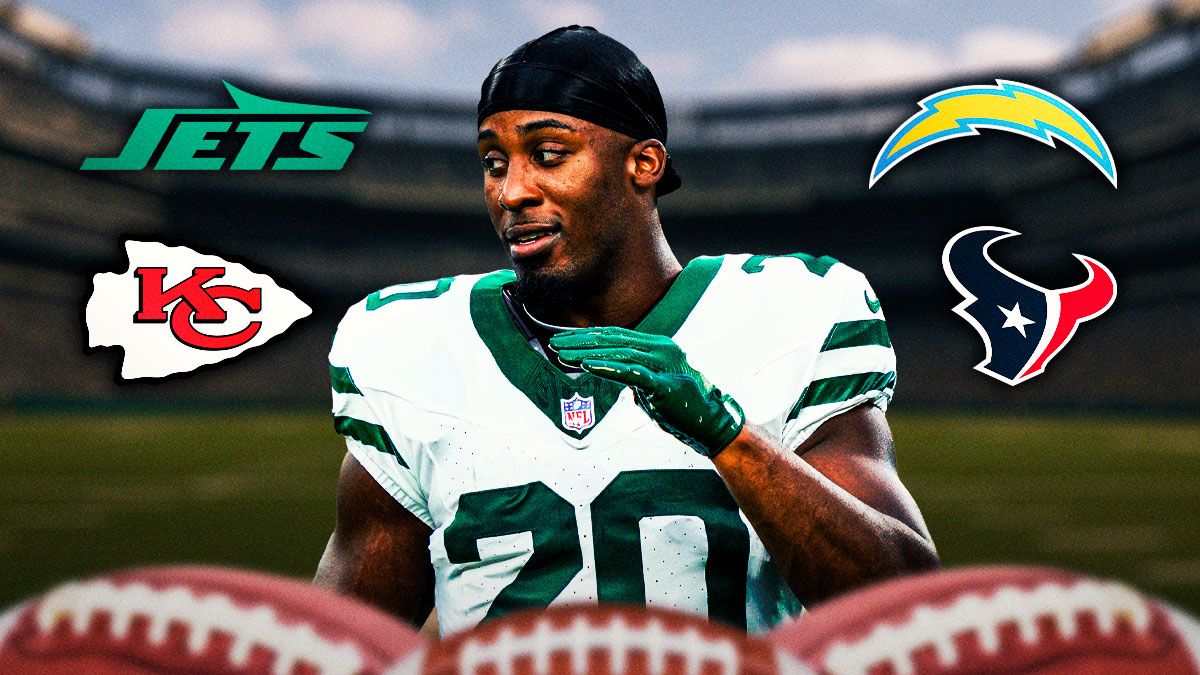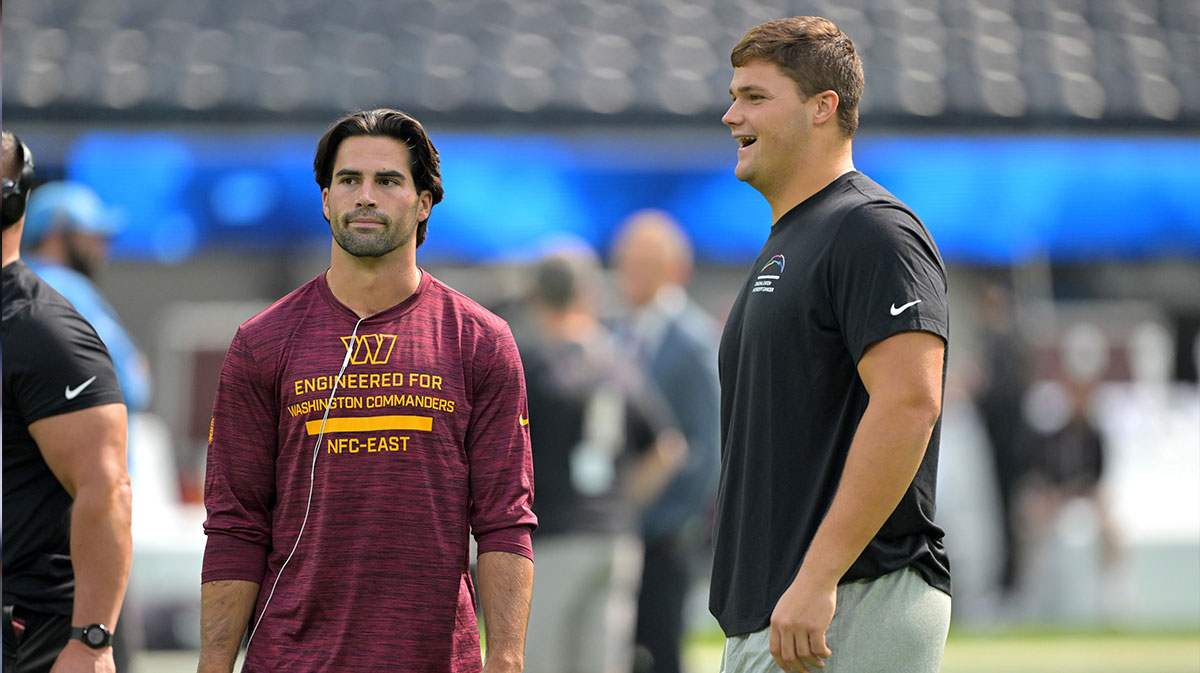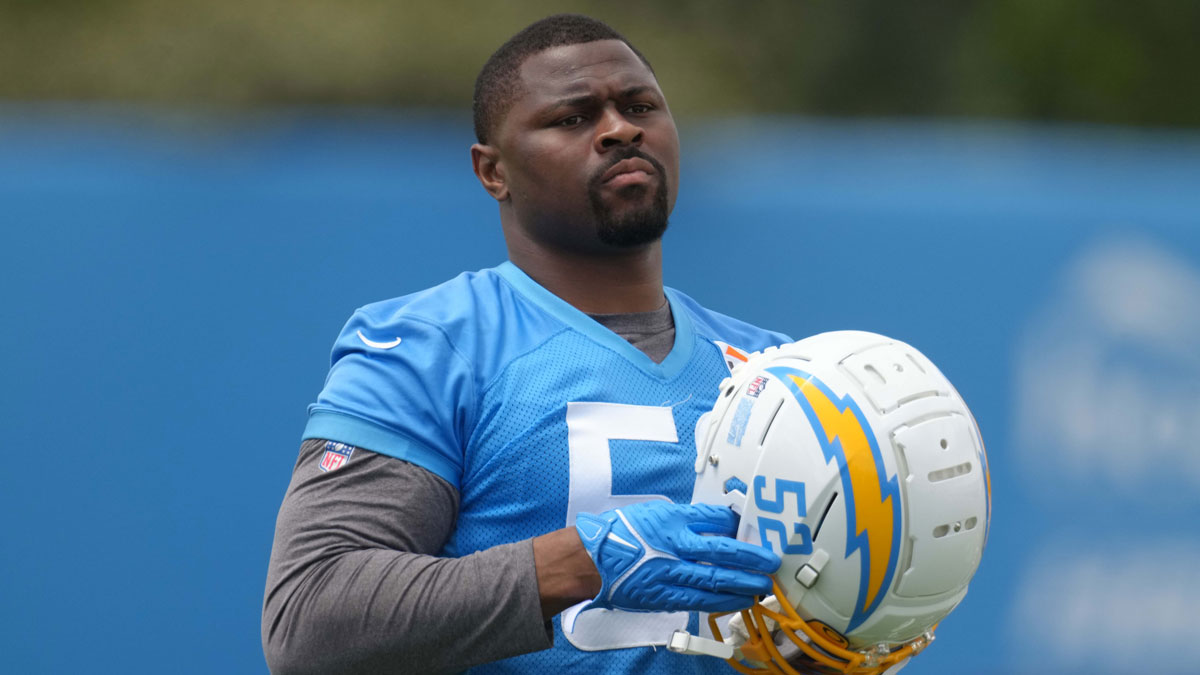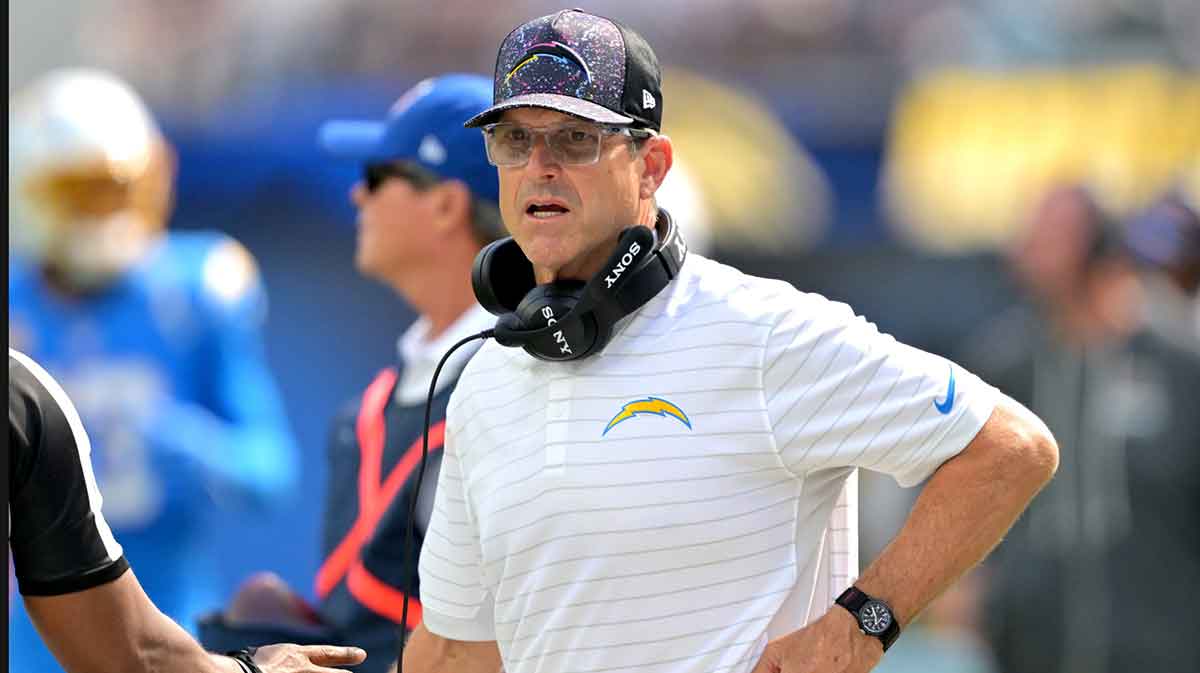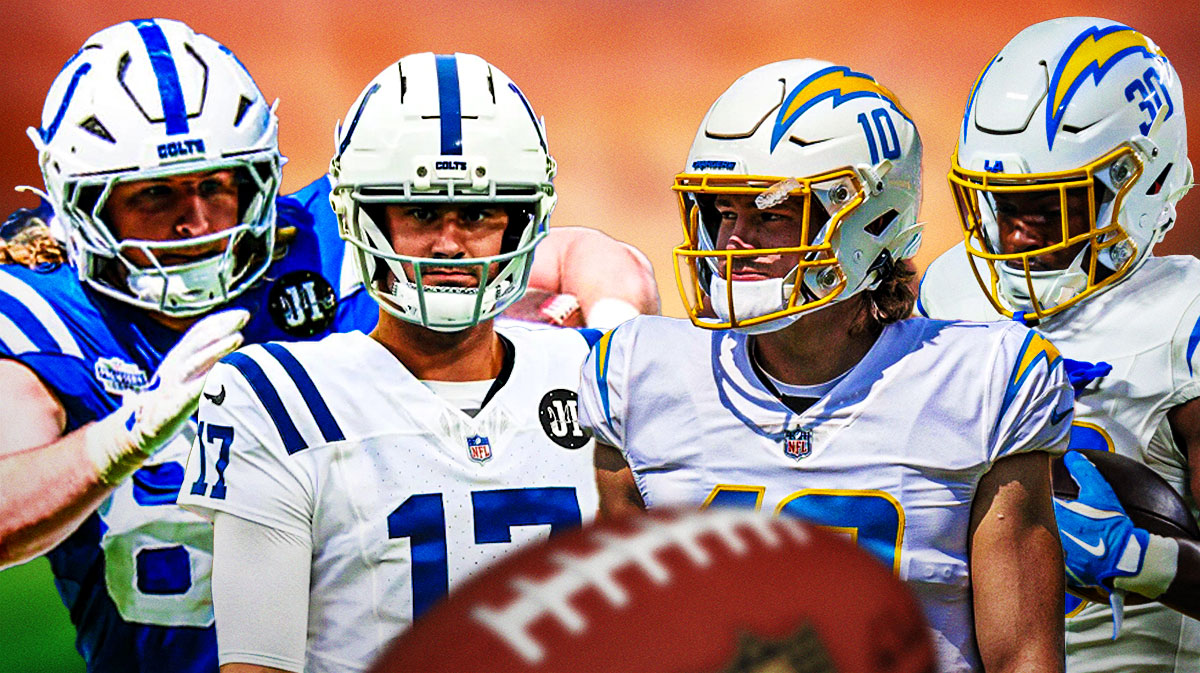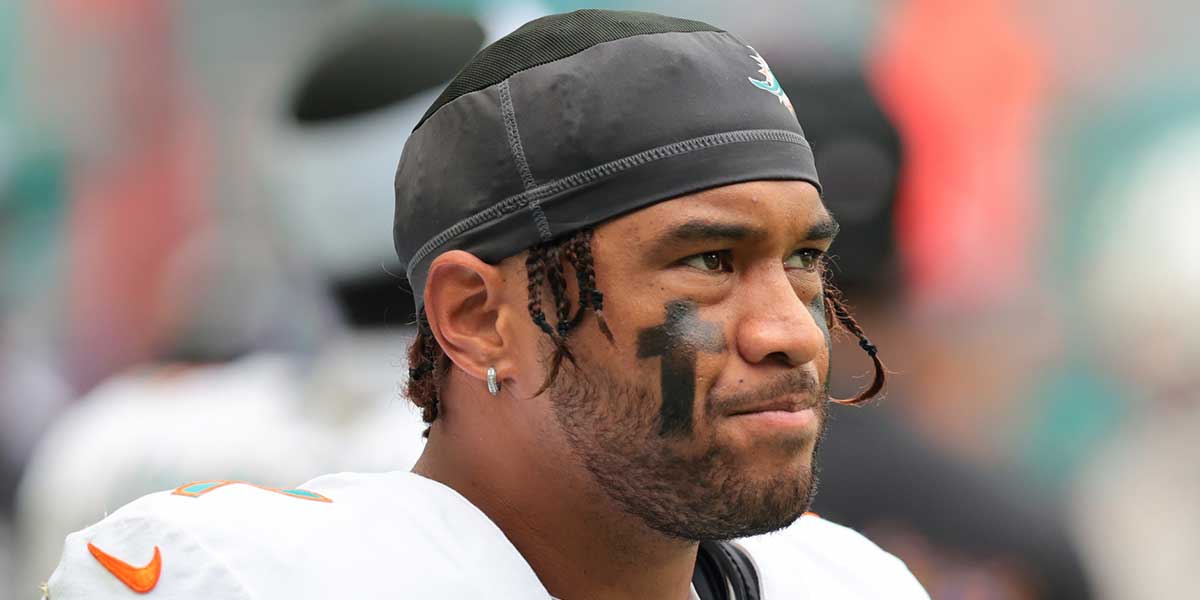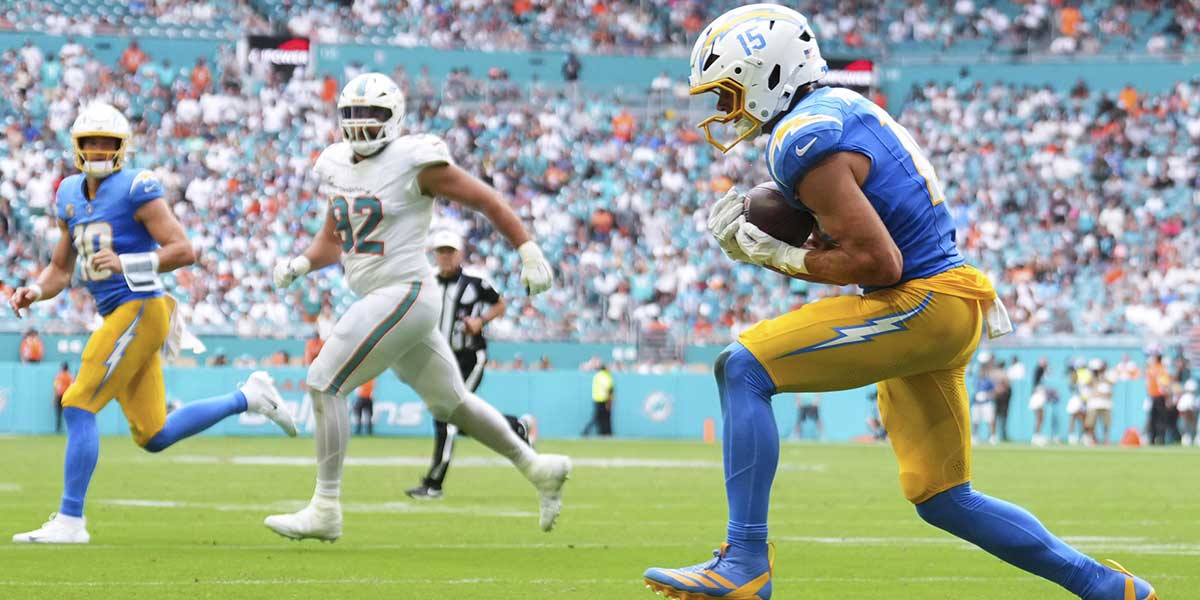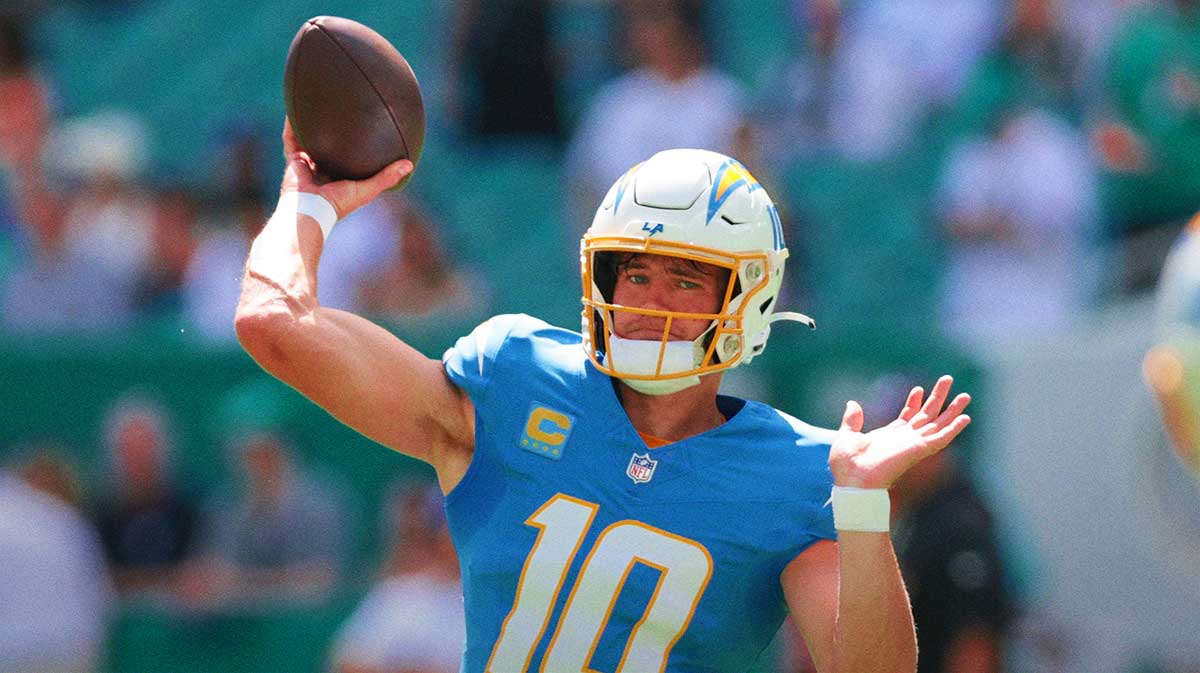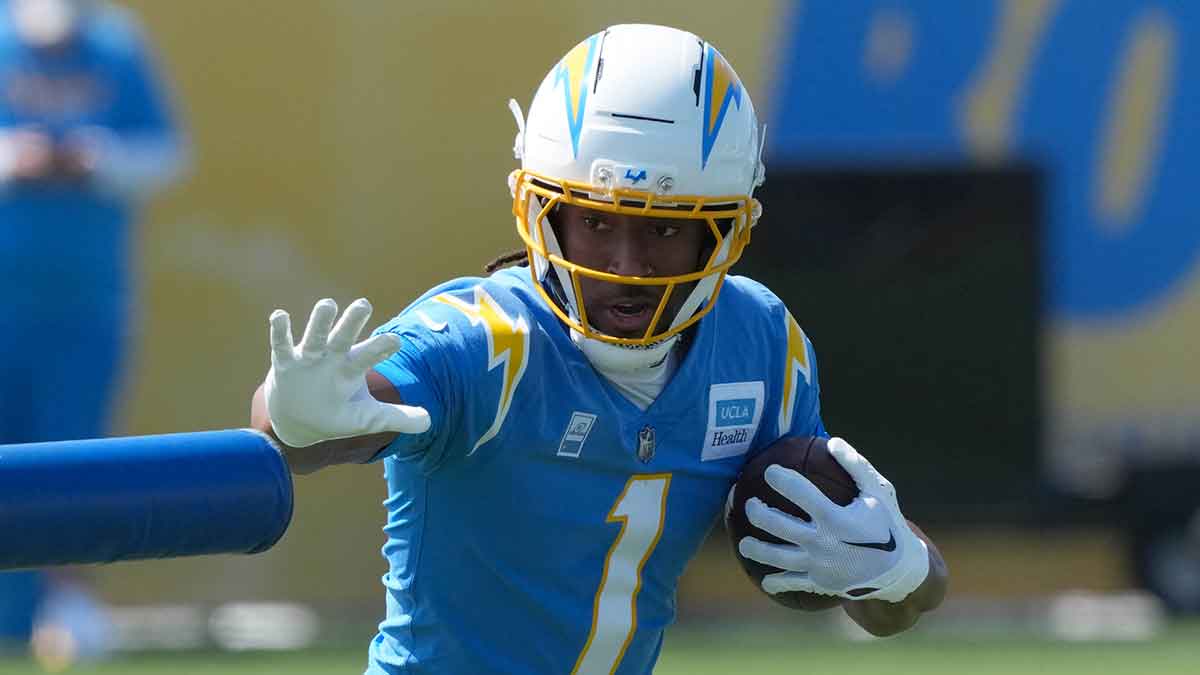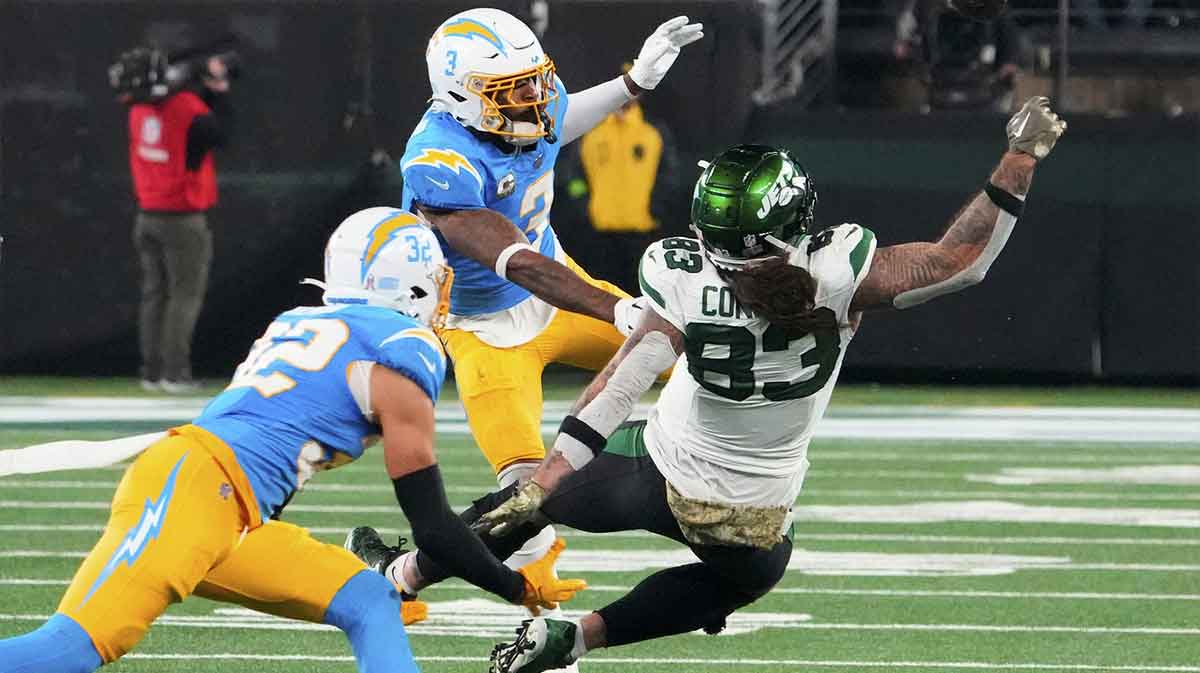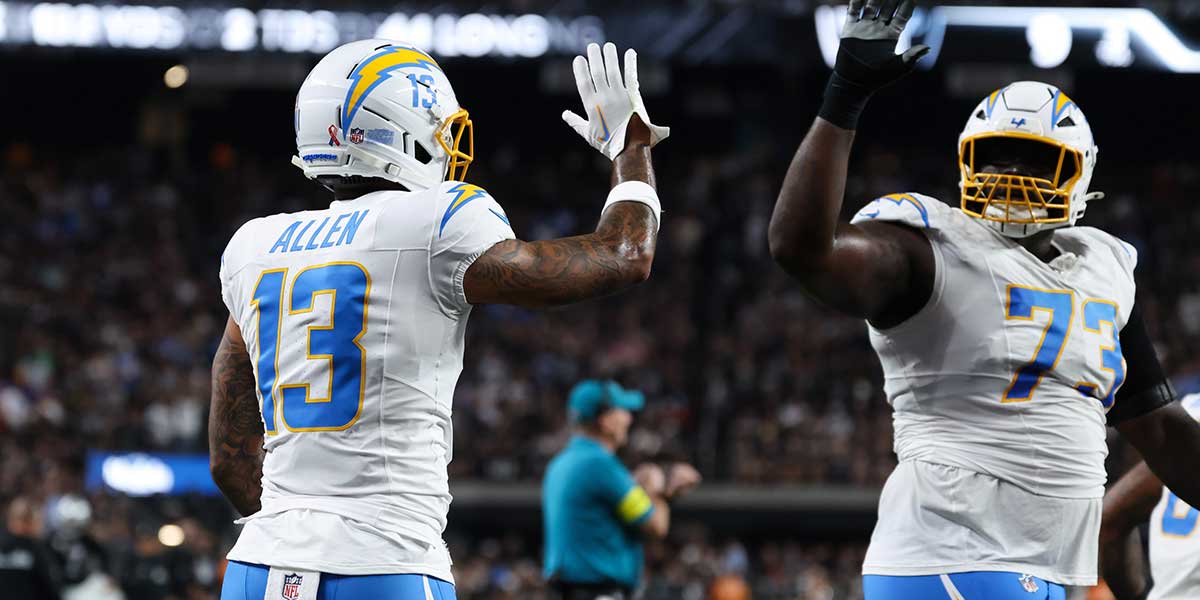The Los Angeles Chargers are in desperate need of backfield reinforcement, and New York Jets running back Breece Hall represents the perfect solution to their running game crisis. With both Najee Harris and Omarion Hampton sidelined by injuries, the Chargers find themselves relying on inexperienced backs Hassan Haskins and Kimani Vidal to carry the load. Meanwhile, the winless Jets at 0-6 face difficult decisions as the November 4 trade deadline approaches, with Hall entering the final year of his rookie contract without an extension.
This trade scenario makes too much sense for both organizations to ignore. The Chargers sit at 4-2 and occupy the second seed in the AFC playoff picture, positioning themselves as legitimate contenders in Jim Harbaugh's first season. Adding an explosive dual-threat running back like Hall could be the difference between a wild card exit and a deep playoff run. For the Jets, trading Hall now allows them to receive valuable draft capital rather than watching him walk in free agency, especially since head coach Aaron Glenn and general manager Darren Mougey didn't draft him and have shown no urgency to lock him up long-term.
The Perfect Trade Package
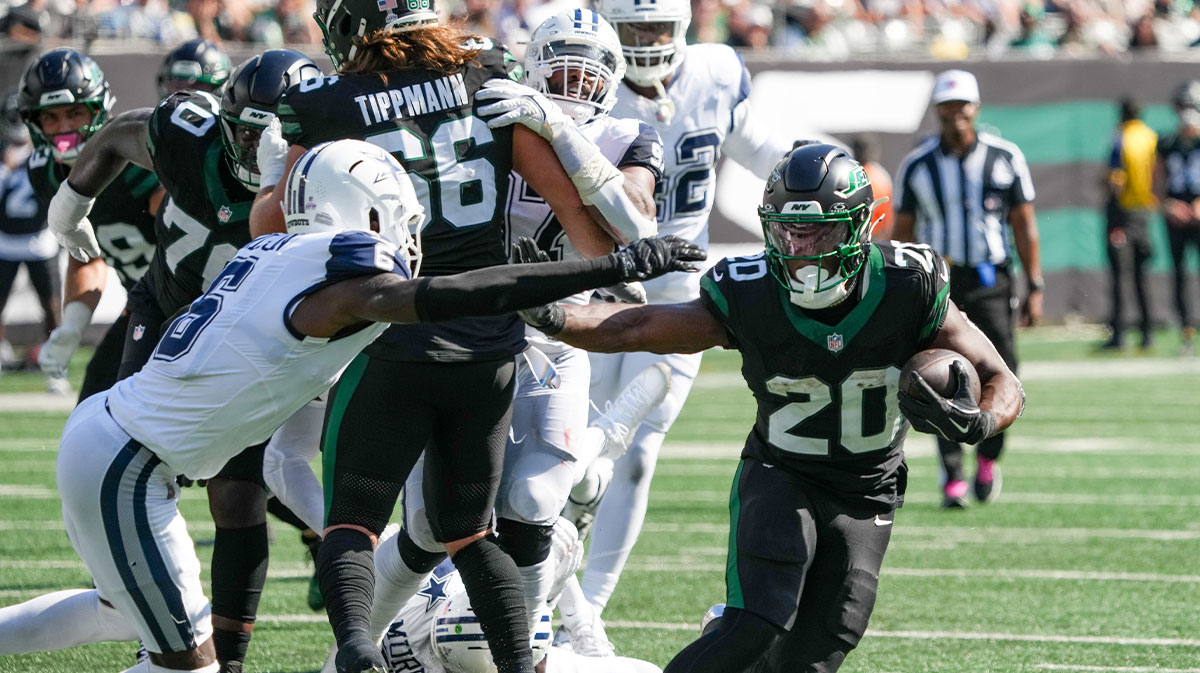
Here's the trade proposal that works for both franchises:
Los Angeles Chargers receive:
- RB Breece Hall
- 2026 seventh-round pick
New York Jets receive:
- 2026 third-round pick
- 2026 fifth-round pick
- 2027 fourth-round pick
This package provides fair value for both sides while addressing critical organizational needs. The Chargers surrender future draft capital to acquire an immediate difference-maker who can contribute for the remainder of the 2025 season and potentially beyond if they choose to extend him. The Jets receive a third-round selection that gives them concrete value for a player they weren't planning to re-sign, plus additional mid-round picks to help new leadership build the roster in their vision.
Why This Trade Benefits the Chargers
Los Angeles desperately needs backfield help after watching their depth chart decimated by injuries. Harris tore his Achilles in Week 3 and is done for the season, while Hampton landed on injured reserve with an ankle injury that will sideline him for at least four games. The team has been forced to rely on Haskins, who has just 64 career carries for 195 yards, and Vidal, a second-year back who spent the early season on the practice squad.
While Vidal showed promise with 124 rushing yards and a receiving touchdown against Miami in Week 6, the Chargers cannot realistically expect sustained production from such an inexperienced duo throughout a playoff push. Hall immediately becomes the most talented running back on the roster and provides the type of three-down capability that championship teams require.
Hall's 2025 statistics demonstrate his value as an every-down workhorse. Through six games, he's compiled 410 rushing yards on 88 carries (4.66 yards per attempt) while adding 17 receptions for 150 yards. His 560 total yards from scrimmage rank 10th in the NFL, and he's averaging six yards per touch, his best mark since his impressive rookie campaign in 2022. The 24-year-old has proven he can handle volume, shoulder the load in crucial situations, and contribute in the passing game—exactly what the Chargers need to complement Justin Herbert's aerial attack.
The Chargers possess the draft capital to make this deal happen without crippling their future. While they only have five projected picks in the 2026 draft due to previous trades for players like Odafe Oweh, they maintain their own first, second, third, fourth, fifth, and sixth-round selections. Surrendering a third and fifth-round pick this year plus a fourth-rounder in 2027 is a reasonable price for a proven starting running back who could help deliver a championship in Harbaugh's first season.
Why the Jets Should Accept
New York's nightmare season has exposed the uncomfortable truth that this roster isn't close to contending. At 0-6 and showing no signs of improvement, the Jets must consider trading valuable assets on expiring contracts rather than losing them for nothing in free agency. Hall represents their most appealing trade chip—a high-performing player without a long-term deal who could fetch meaningful draft compensation.
Glenn has repeatedly dismissed trade rumors, stating “they're rumors” when asked about potentially dealing Hall. However, the head coach's public stance may simply be posturing to maximize Hall's trade value. The reality is that New York failed to extend Hall despite locking up 2022 draft classmates Sauce Gardner and Garrett Wilson to long-term deals. This organizational decision telegraphs their lack of commitment to Hall's future with the franchise.
Trading Hall nets the Jets a guaranteed third-round pick plus additional mid-round selections—far more valuable than the compensatory pick they might receive if he departs in free agency, which could be canceled out by their own free agent signings. This draft capital allows Mougey to acquire players who fit his vision and gives the new regime resources to rebuild properly.
The Jets also have contingency plans at running back with Braelon Allen, who has shown promise when healthy, and Isaiah Davis on the roster. While Hall's departure creates a short-term void, it's a necessary move for a franchise that needs to accumulate assets and start building for 2026 and beyond.
This trade proposal represents a win-win scenario that addresses both franchises' most pressing needs. The Chargers acquire the dynamic running back they desperately need to complement their playoff-caliber roster, while the Jets receive the draft ammunition necessary to rebuild properly under new leadership. With the November 4 deadline approaching fast, expect conversations between these two organizations to intensify as both sides recognize the mutual benefits of getting this deal done.


